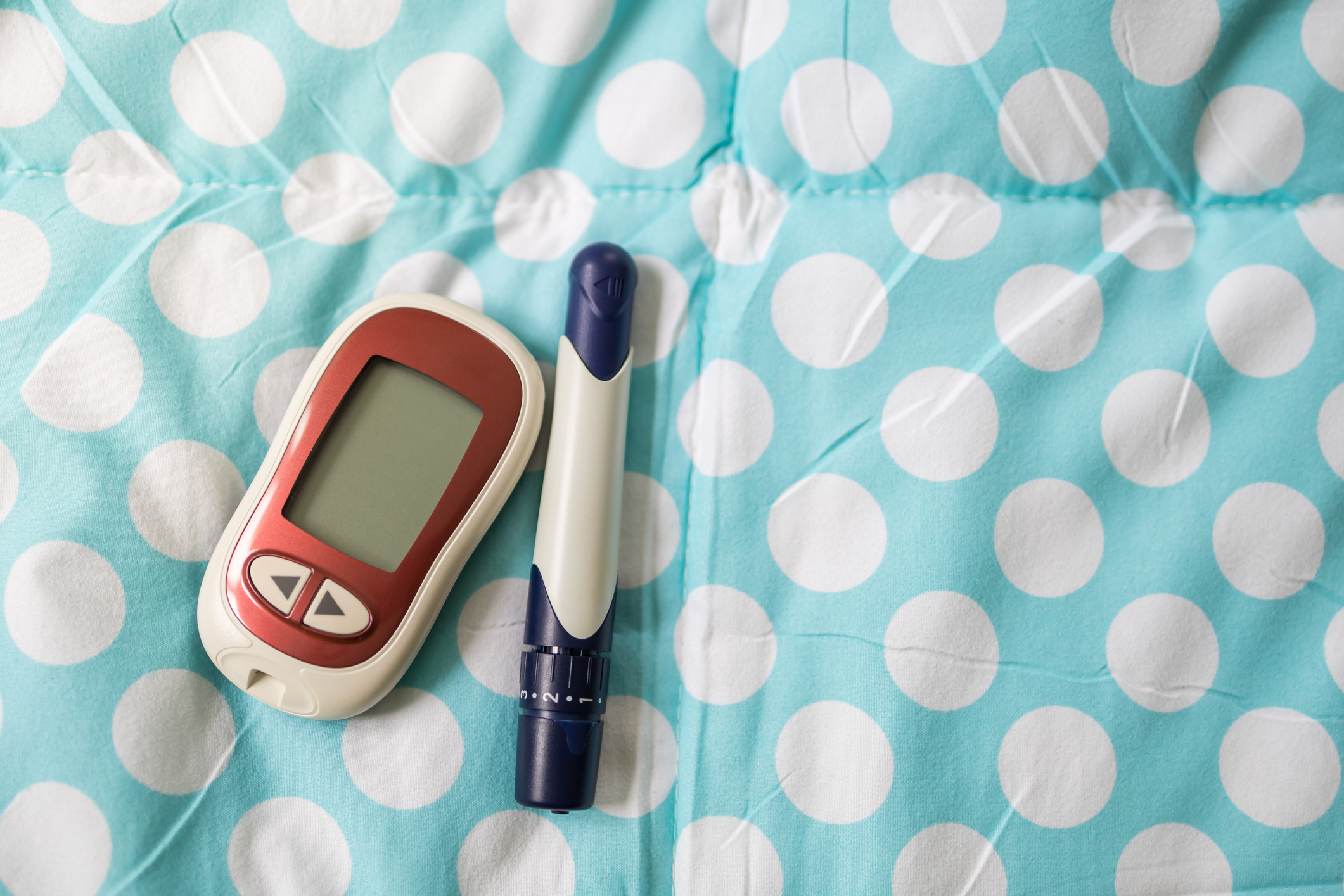Get Easy Health Digest™ in your inbox and don’t miss a thing when you subscribe today. Plus, get the free bonus report, Mother Nature’s Tips, Tricks and Remedies for Cholesterol, Blood Pressure & Blood Sugar as my way of saying welcome to the community!
The diabetes side effect no one talks about

There are a number of side effects that often show up before you’ve been diagnosed with diabetes. For instance, you may be urinating more often than usual, or suffering from fatigue, increased hunger and/or thirst or blurred vision. Or you may notice discolored patches of skin or a cut or wound that’s slower to heal than normal.
This is when you’ll want to have your doctor check your blood sugar to see if you have diabetes. If you do, your doctor will go over the list of potential health effects with you. The blood sugar disorder can damage your blood vessels, leading to heart attack and stroke, as well as problems with the kidneys, eyes, skin, feet and nerves.
But there’s one side effect that physicians are surprisingly reluctant to discuss with you. And it’s one that only 50 percent of men and 19 percent of women with diabetes bring up with their doctors themselves…
Diabetes and the bedroom
As much as we supposedly live in a society that’s open about sex, we can be a little shy when discussing our own sex lives. But when you’re hit with diabetes, there’s a good chance it’s going to impact your sexual activity.
High blood sugar levels can cause vascular and nerve damage (or neuropathy), both of which can decrease blood flow to the genitals. This can make sex difficult for men due to erectile dysfunction, and uncomfortable or painful for women due to vaginal dryness. Diabetes can also leave you more vulnerable to yeast infections, which can contribute to further genital discomfort in women.
Beyond just the physical act of sex, diabetes can also kill your sexual desire. In fact, low libido is an often-overlooked symptom of diabetes. Without healthy nerves and good genital blood flow, it’s tough to feel pleasure or achieve orgasm, so desire naturally falls off.
In addition, diabetes can throw your hormones out of whack, particularly testosterone. Both men and women with diabetes tend to have low testosterone levels, which can reduce your sex drive. The risk of low testosterone is twice as high for men with diabetes, especially those who have type 2 or who are overweight, as it is for men without the disease.
Ways to revive your sex life after diabetes
The best way to help bring your sex drive back to life after diabetes is to properly manage your condition. If you’re a person with diabetes who’s experiencing low libido or sexual dysfunction, make sure to check your blood sugar to determine whether the treatment plan you’re on is working to properly manage it.
Of course, diet is very important to keep your blood sugar in check. And some diets have been shown to reverse the condition. Researchers from Newcastle University found that following a low-calorie diet for eight weeks reverses type 2 diabetes.
If your diabetes is under control and you’re still having problems in the bedroom, it’s time to look at other treatment options.
There are drugs that increase blood flow to the penis — but be aware that they are not without their side effects. Some foods and nutrients can help do the same, without those side effects, for both men and women by improving blood flow.
And as far as low libido in men, if it’s caused by low testosterone, there are also options there to help increase levels that can renew their desire for sex — including combatting estrogen dominance. Surprisingly following the keto diet has been found to improve testosterone levels.
But with women, it’s not quite as simple. For one thing, diabetes isn’t the only condition that can cause a woman to lose her libido. For instance, menopause often brings her sex drive to a screeching halt thanks to low estrogen levels and increased dryness and thinning of the vaginal walls. And menopause also brings with it an increased risk of developing diabetes, making it difficult to know which is the culprit in stealing a woman’s sexual desire.
If low estrogen is an issue, estrogen replacement therapy, preferably in the form of cream or mouth lozenge, as well as natural estrogen supplements can help restore vaginal health and lubrication. There are also lubricants a woman can use to make sex more comfortable and pleasurable.
In the case of low testosterone, while some limited studies have shown that giving women testosterone can increase their sexual desire, more research is needed to confirm its effectiveness.
Finally, if you’re a man or woman and you find that pain from diabetic neuropathy is interfering with your sex life, you may want to add a vitamin D supplement to your daily regimen. Studies show people with painful diabetic neuropathy tend to have lower vitamin D levels than those without neuropathy, or whose neuropathy is painless.
Editor’s note: Are you feeling unusually tired? You may think this is normal aging, but the problem could be your master hormone. When it’s not working, your risk of age-related diseases skyrockets. To reset what many call “the trigger for all disease” and live better, longer, click here to discover The Insulin Factor: How to Repair Your Body’s Master Controller and Conquer Chronic Disease!
Sources:
1. 10 signs that may indicate you are at risk for diabetes — Voyage Healthcare
2. Diabetes – long-term effects — Better Health Channel
3. Sexual Dysfunction and Disease — Cleveland Clinic
4. Sex and Diabetes — American Diabetes Association
5. How does diabetes affect your sex life? — Medical News Today
6. Low Vitamin D Levels Linked to Painful Diabetic Neuropathy — MedPage Today













